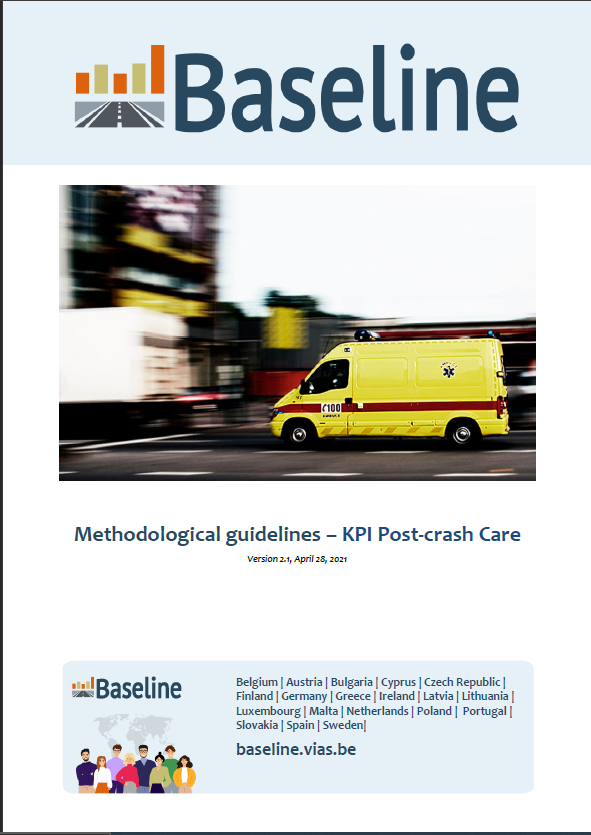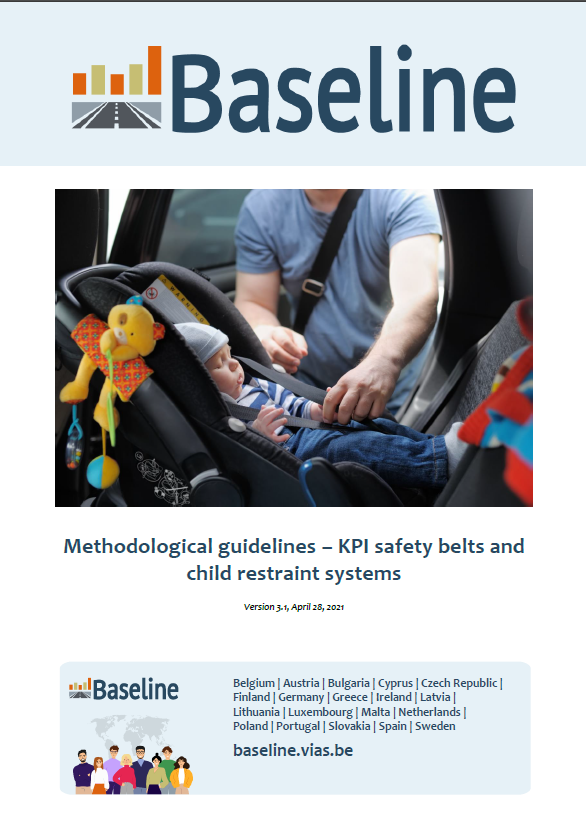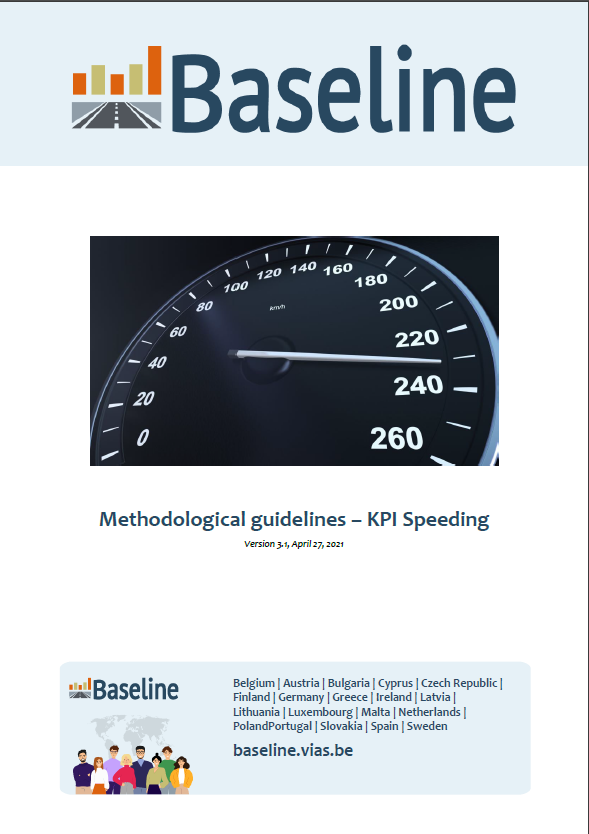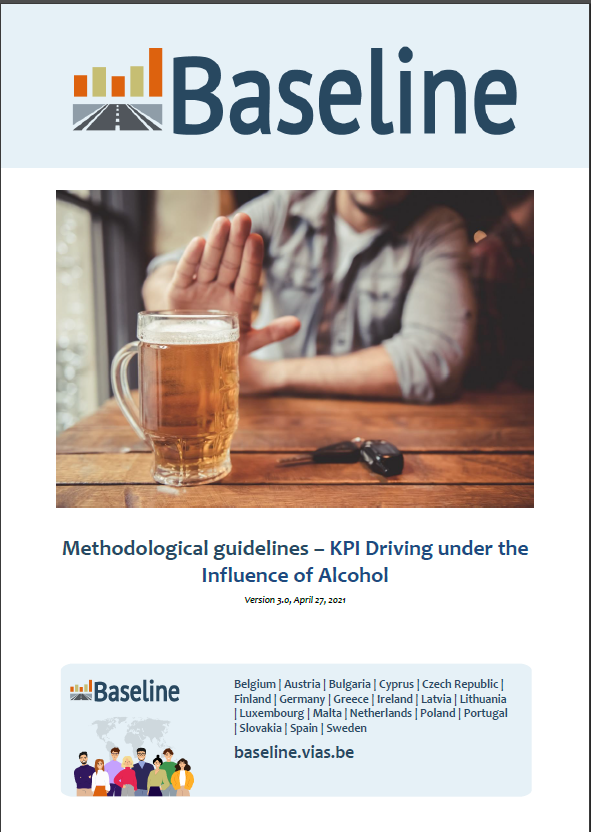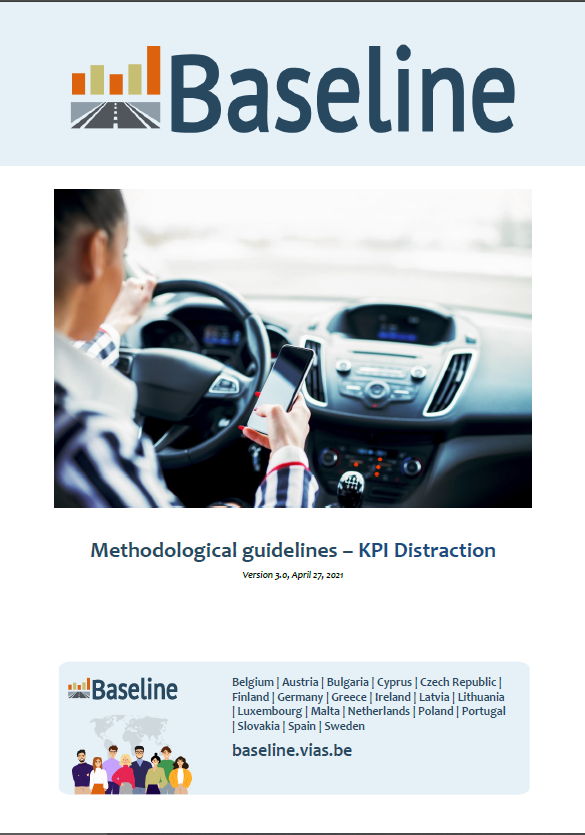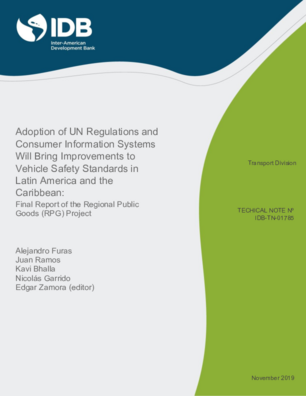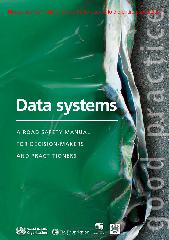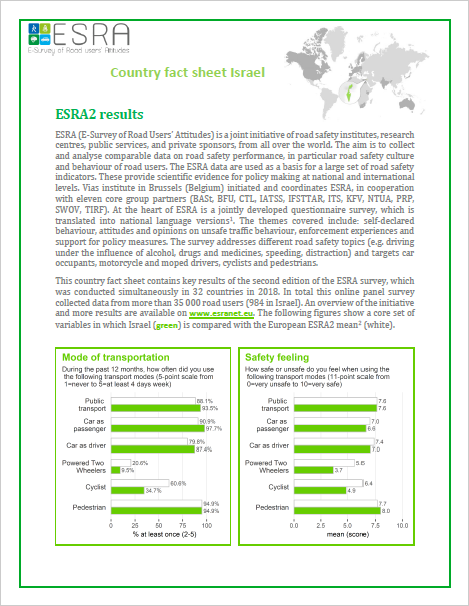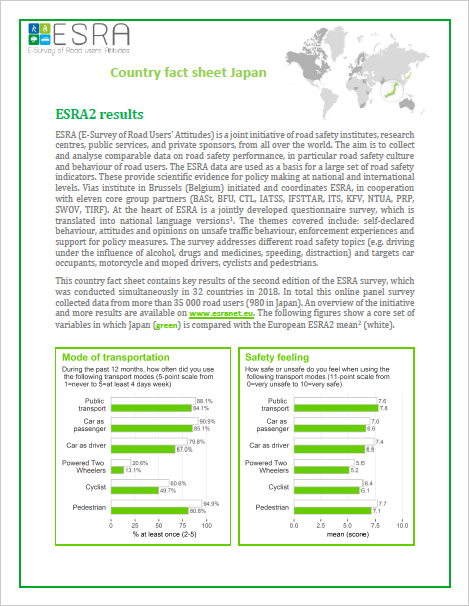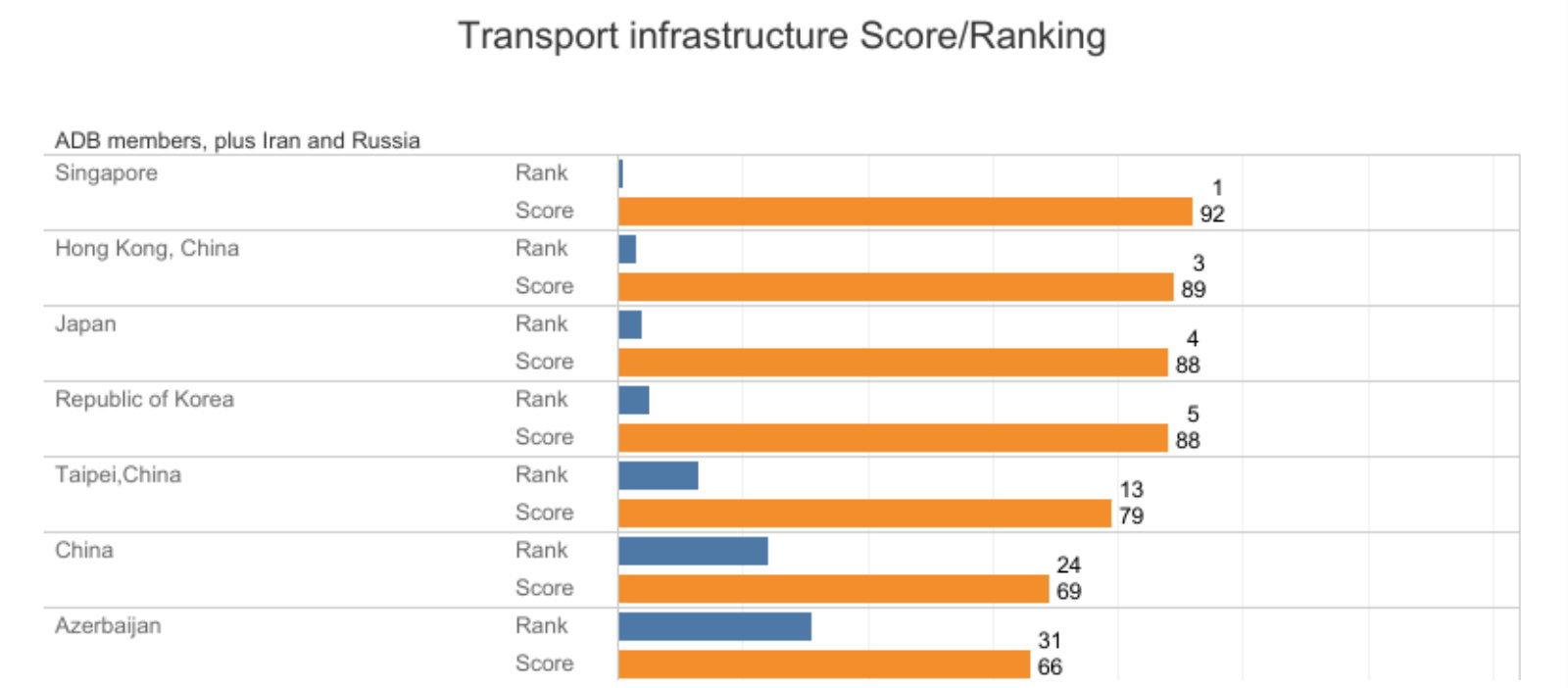
Data and Knowledge
The fifth good practice manual jointly prepared by WHO, GRSP, the World Bank, and the FIA Foundation focuses on data systems for road safety. Reliable and accurate data are needed for a variety of purposes, including for advocating for road safety, identifying specific problems and risks, setting targets, formulating appropriate strategies and monitoring impact. Road safety data, collected every day in most countries, cannot meet these objectives unless they are properly coded, entered in a system, processed, analysed, disseminated and used.
ESRA (E-Survey of Road Users’ Attitudes) is a joint initiative of road safety institutes, research centres, government departments, and private sponsors, from all over the world. The aim is to collect and analyse comparable data on road safety performance, in particular road safety culture and behaviours for policy measures.
ESRA (E-Survey of Road Users’ Attitudes) is a joint initiative of road safety institutes, research centres, government departments, and private sponsors, from all over the world. The aim is to collect and analyse comparable data on road safety performance, in particular road safety culture and behaviours for policy measures.
ESRA (E-Survey of Road Users’ Attitudes) is a joint initiative of road safety institutes, research centres, government departments, and private sponsors, from all over the world. The aim is to collect and analyse comparable data on road safety performance, in particular road safety culture and behaviours for policy measures.
Pagination
Partner Websites
The Big Data Tool summarises star rating and investment plan data – over 400 million data points – based on 358,000km of roads across 54 countries covering over 700 billion vehicle kilometres of travel every year.
The Road Safety Toolkit provides free information on the causes and prevention of road crashes that cause death and injury.
These documents provide information and knowledge for partners so that they can lead, undertake and implement iRAP assessments.
Maximising travel on roads that are 3-star or better will save lives and reduce injuries. Applying the global standard and ensuring all new roads are built to at least a 3-star standard for all road users and existing roads are upgraded to achieve >75% of travel on 3-star or better roads is the vaccine we need.
These select publications have been developed jointly by multiple partner agencies of the UN Road Safety Collaboration or in some cases by individual partner agencies.
